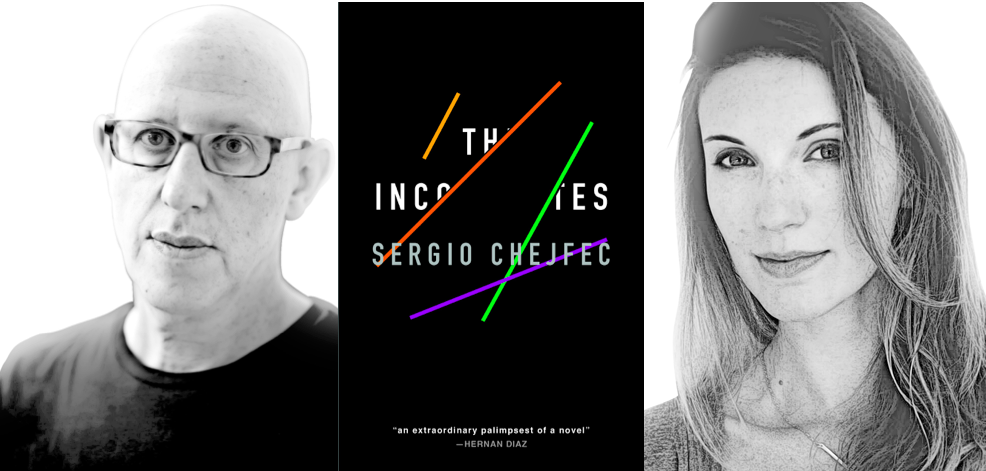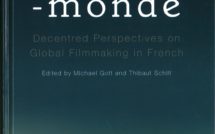

Translated from the Spanish by Heather Cleary.
Now I am going to tell the story of something that happened one night, years ago, and the events of the morning and afternoon that followed. Ending a day the same as any other—nightfall, exhaustion, silence, solitude—during those final domestic acts one performs with resignation and mounting fear, wondering if that night will be the last, if the world will vanish while we sleep, or if our soul will wake to find itself forever separated from its body—from that night’s protracted beginning until the moment I nodded off, my thoughts turned insistently to a friend I hadn’t seen, I haven’t seen, in years. When we were young, a time nearly forgotten and from which decades separate us, he decided to leave his country and survive in the world like a wandering planet, to steep himself in the languages he would pick up along the way and, among other things, to take on a vague international luster (always bearing the ambiguous yoke, both brutal and enviable, barely visible yet indelible, of being an Argentinian in flight).
I should say “I haven’t forgotten,” rather than invoke memory. Of the morning when he left, I haven’t forgotten the empty port, a little blue stall with a white roof, trees scattered as if by chance across the surrounding area, and, above all, the piers and the repetitive backdrop of nautical equipment (cranes, jetties, tracks, and moorings) at the ready, though they seemed gratuitous in the absence of more people or other ships. I got there early and waited. (It seems to me now that time was more complex in my youth: I was waiting for someone who was about to leave, as if waiting had asserted itself in advance as a cause—this was why the days passed so slowly; maddeningly drawn out, they sometimes even seemed to grind to a halt and the whole idea of reality, along with the idea of nature concealed within it, presented itself asdistressingly multiple and unpredictable.) The pier was just a damp promenade; drops of dew fell from the roof of the little stall, and the slowly dissolving night still hid the water’s surface like an immense, uninhabited depression. The wait seemed to suit the occasion—even if you understood time as an unstoppable thing set in motion, its languor, or rather its apathy, was still surprising: the morning’s lack of urgency to arrive.
A long time passed like that, I think. Distant lights slowed their flickering in the sky; just as they threatened to go out altogether, I saw a car approach slowly and what might be described as shakily, probably because of the cobblestones. It was the taxi that had brought Felix. The car rolled forward for what I considered a theatrically long time. And then nothing happened. Felix remained inside for no reason at all, like a stage actor delaying his entrance, though I had no way of knowing that. After a while he opened the door and started removing his luggage. I thought he’d never finish—at first glance, it seemed impossible that the suitcases and packages piled beside the car couldhave fit inside. (It reminded me of those comedic scenes of trunks or vans spouting endless streams of objects.) Then the taxi drove off and Felix was left standing in the middle of the street, flanked by two sizeable heaps. Suddenly alone, he had trouble getting his bearings. I could tell he was paralyzed, probably completely overwhelmed to find himself out in the open and even more so by the task ahead of him; I don’t mean just the ordeal of moving his luggage, but rather the act of recognizing it for the first time as a surrogate of himself: silent and necessary additions, an extension of his body bound to follow him for a long time to come . . .That was when he saw me, almost hidden in the half-light of dawn, and I in turn saw his surprise at my being there early.
The characteristic scent of Buenos Aires, a mix of aquatic plants and the local soil, which—as many have told me and I’ve also read—still filters through the streets on the breeze, was an incipient aroma slowly rising off the river to form waves of disparate and paradoxically incomplete smells that morning, probably due to the hour. Here, the memory skips to the next scene: we take a few indecisive steps toward a warehouse’s loading dock, where—with nothing better to do as we wait for the still-empty pier to spring into action and fill with people—we begin to talk. I’ve forgotten the essential parts of that conversation; I retain most vividly the image of a few very large, very yellow kernels of corn that had fallen between the paving stones, at which I stared intently the entire time. They stood out as a glimmer of life protected deep in the rock, in crevices that pigeons would later try to rob of their prize, rarely with any success.
The fact is, every so often I receive a few invariably brief lines from Felix in which he casually summarizes the recent events of his life. I don’t know whether to call it coincidence, a premonition, or some kind of message, but just hours after I remembered him, after his presence asserted itself and no other thought could eclipse the ideas associated with him, that same presence spontaneously materialized the next morning, translated into a simple postcard sent by Felix—an act that was surely less eloquent than the meaning it took on through the coincidence. A day like any other: nothing had happened to make Felix occupy my thoughts the way he did for much of that night and the following day, when I finally sat to jot down a few notes about it as a way to welcome a mental visit that at once conceals and consolidates distance.
A long time often goes by without Felix sending word from somewhere he has moved or is passing through. He typically uses cheap or free postcards, or sheets of hotel stationery. Before I read or receive them, and probably before Felix even writes them, these messages are already old-fashioned, archaic; they have the quality of obsolete correspondence. I’m not talking about our friendship, but rather the paper itself, that stiffmaterial faded by the passage of time. On occasion it has occurred to me to think about how long a postcard would need to sit in one of those stands to look like that, or about those envelopes embellished with the kind of flourishes you see on school diplomas, all distinctly sepia. Felix’s handwriting is tentative, or maybe I should say nervous or emotional; it suggests an inhibition whose underlying motives only he can reveal. He announces some “new battlefield,” as he calls it, that is, a change of activity and place. Leaving the country was an attempt to free himself from the bonds of nationality in favor of other, more fluid ones that would protect him, illusorily, from the decisions of any single State and from the emotional effects of what happened there. As a citizen of the world—“What does that mean, anyway?” he asked in one of his early notes, more frequent after he first left—like any good citizen of the world, Felix tempers his defining characteristics according to a series of ever-changing conventions. It’s not that he is conventional; he simply realized that the anonymity he sought, in order to be such, should resemble uniformity—and, by extension, predictability.
He even sent me a postcard once from Buenos Aires: a partial view of its taciturn bus terminal with a police car crossing the avenue in the foreground. Several hundred meters behind the building, the background offers a glimpse of a monument blurred by the distance and, presumably, by the city’s noxious air; to its right, two rows of buses all painted the same dark color seem to be paying it some incrutable military tribute. The image on the postcard, which appeared to have been captured in a rush, managed to seem less like a photograph than like a glance cast by one of the thousands of people who pass through there every day, not seeing anything in particular. It was as if Felix were saying, beyond the content of his terse, hand-written note, “Here I am, so immersed in this movement, the confusion and the daily grind, that I’ve grabbed an artless postcard that says exactly the opposite of what you would expect and dissolves into a conventional panorama.”
One could, in fact, picture someone reaching Buenos Aires after days at the mercy of the continent’s endless highways, and imagine this person feeling relieved or even happy rather than dejected, despite the gloomy scenery offered by that part of the city, to have reached their journey’s end. After getting off the bus, the passenger immediately forgets the trip (a recent, but curiously faded, ordeal); nonetheless, by some strange mechanism he is able to recall the roads, the passing days, and the gradual transformations along the route; he can also imagine, without error, how much of what he has seen remains the same and probably will forever. For example, that the eatery next to the gas station where they stopped one morning is still there, and so is the bathroom where he let water run for a long time over his hands. The traveler imagines all these elements (bathroom, sink, eatery, highway) with their blind, mismatched routines as the nuclei or eternal wellsprings of experiences, given over to their own phenomenon: having shown a fleeting relevance, they might continue on like that indefinitely, at the disposal of whoever might pass through and wish to make the same use of them. In the midst of this contradiction between the fresh memory of his journey and the impersonal existence of the landscape that the recently arrived realizes that the gloomy postcard panorama that is morning in Buenos Aires is the only event of any value he can cling to; it may be a sad and miserly spectacle but, ultimately it is proof of what that arrival represents.
Sergio Chejfec, originally from Argentina, has published numerous works of fiction, poetry, and essays. Among his grants and prizes, he has received fellowships from the Civitella Ranieri Foundation in 2007 and the John Simon Guggenheim Foundation in 2000. He currently teaches in the Creative Writing in Spanish Program at NYU. His novels, The Planets (a finalist for the 2013 Best Translated Book Award in fiction), The Dark, and My Two Worlds, are also available from Open Letter in English translation.
Heather Cleary’s translations include Roque Larraquy’s Comemadre, César Rendueles’s Sociophobia, Sergio Chejfec’s The Planets and The Dark, and a selection of Oliverio Girondo’s poetry for New Directions.
This excerpt from The Incompletes is published by permission of Open Letter Books. Copyright © 2004 Sergio Chejfec. Translation copyright © 2019 Heather Cleary.
Published on September 10, 2019.




